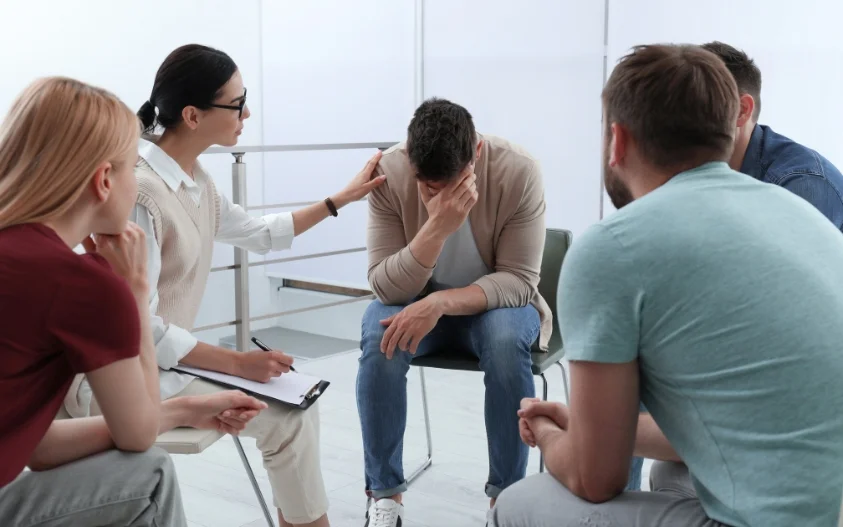24/7 Helpline:
(866) 899-221924/7 Helpline:
(866) 899-2219
Learn more about Ecstasy Rehab centers in Washington Court House
Ecstasy Rehab in Other Cities

Other Insurance Options

Cigna

BHS | Behavioral Health Systems

MHNNet Behavioral Health

Health Choice

Ambetter

Optum

Horizon Healthcare Service

Kaiser Permanente

Anthem
Beacon

Absolute Total Care

Sliding scale payment assistance

GEHA

Regence

Health Partners

Aetna

Coventry Health Care

UMR

Optima

Private insurance

Scioto Paint Valley Mental Health Center
Scioto Paint Valley Mental Health Center provides help for drug addiction, alcoholism, and a variety...

The Ranch of Opportunity
The Ranch of Opportunity in Court House, OH is a safe haven for teenage girls who have experienced t...

Fayette Womens Residential
Fayette Womens Residential is a private rehab located in Washington Court House, Ohio. Fayette Women...

Fayette Recovery Center
Fayette Recovery Center – Washington Court House Ohio is an alcohol rehab center that helps individu...







































